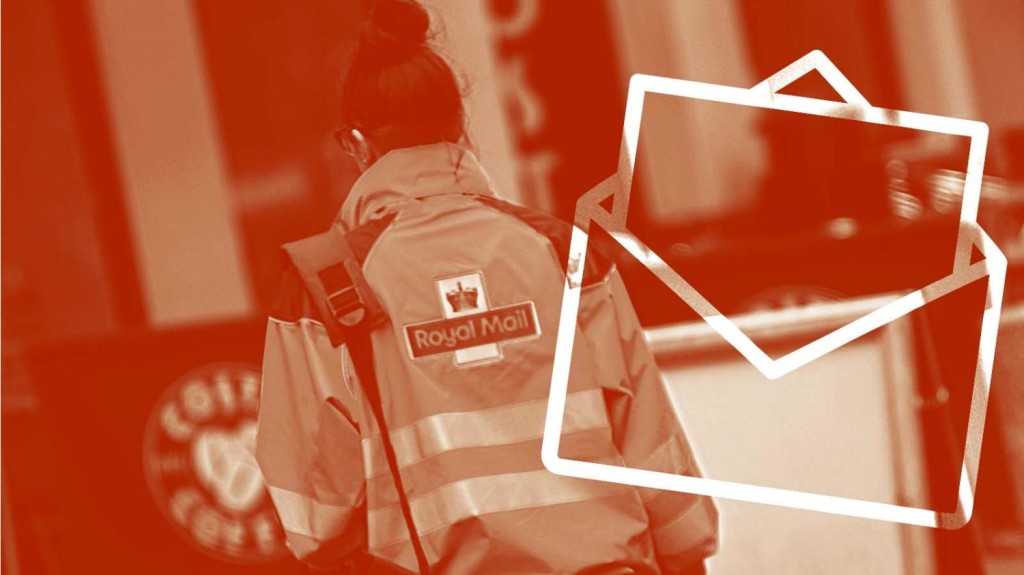Greetings issues hit national press with Christmas criticism, letter delays, and Royal Mail takeover fears
At a time when we all need a big slug of good news, the consumer media dished out a dosh of unwelcome PR hitting at a sensitive time for Christmas card buying.
This weekend the national press has put the industry at the forefront – but it’s not been good news, slamming Chinese imports, a Czech threat to Royal Mail, and posties allegedly being told to prioritise more profitable parcels and leave cards undelivered.
An article in The Telegraph’s highlighted how many Christmas cards sold by major retailers are being manufactured in China. The story accused High Street shops of hypocrisy and “a lack of sensitivity” over the true meaning of Christmas for outsourcing the printing of festive greetings to China where Christians are often persecuted.
With the thought of messages of hope, peace and marking the birth of Jesus, being produced in a country with a poor human rights record, critics told the Telegraph the practice flies in the face of widespread concerns about the Chinese government’s treatment of its religious minorities, and working conditions across many of the giant nation’s industries.

Picking 10 High Street shops and supermarkets, the paper found 129 of the 279 multipacks sold in the central London branches were made in China, singling out Marks & Spencer, Waitrose, Sainsbury’s, and WHSmith claiming many of their multipacks were produced the Far East.
The extensive piece reported all M&S 15 packs on offer were Chinese-made, as were all four John Lewis brand multipacks in Waitrose, the 10 in WHS, and the four at Sainsbury. In Paperchase, the article said only the seven luxury collections out of the 57 on offer were made in the UK. In contrast, at Selfridges and Rymans, all multipacks were British made, and Scribbler also did well with 85%.
Charity boss Paul Robinson, of Release International which supports persecuted Christians in China, said: “I get this, I really do! During a cost-of-living crisis people want to buy cheap cards for Christmas. But Christmas is about Christ and we should really think hard and long before buying Christmas cards manufactured in a country which persecutes Christians in appalling ways.
“Purchasing Christmas cards made in China directly funds this cruel anti-Christian regime.”
Former Conservative Party leader Iain Duncan Smith added: “Loads of printers go out of business here, meanwhile China uses slave labour. I’m appalled by the lack of sensitivity of these organisations.”
And a reader wrote in asking: “How could I send my friends Christmas cards made in China when China persecutes Christians, as well as Muslims and Buddhists?”
All retailers stressed they had robust audits in place to ensure suppliers’ workers are fairly treated, and M&S and Sainsbury’s both added that the majority of their cards are UK made but cited the need to work with international partners to meet increased customer demand during busy times.
A WHSmith spokesman told the Telegraph: “The vast majority of the UK greeting card industry sources from China, and this has been the case for many years. We have our own in-house team of auditors who are qualified and experienced in social auditing, and all four factories we source from have been audited in the past four months.”

Over at The Sunday Times there was a Confessions Of A Royal Mail Postie article, following a postwoman on a typical Thursday morning shift visiting 500 addresses in 2½ hours, and explaining about the challenges of the job.
The paper spoke to several postal workers who said a shortage of staff meant they were instructed by managers to deliver special delivery and tracked items only – the majority of which are parcels – on some shifts, although Royal Mail, which plans to cut 10,000 jobs by next August, denied this is official policy, saying it has reminded staff that “letters and parcels should be treated with equal importance”.
The postie explained how she can often be the only person people see all day, and has helped take wandering pets home, assisted people who have fallen, as well as stopping fraud by refusing to hand over post to people she knows don’t live at that address, and she fears this community service is being lost.
She said she sympathises with her employer, which is dealing with declining letter volumes and losses, but believes it has lost sight of the significance of letters to the public.
On the day, the paper reported that she will deliver no letters to two roads on her route having been told by her bosses to leave them at the sorting office and focus on the tracked parcels because there would not be enough time to cover every street.
She said: “Tracked parcels are the priority because they make the most money so they take precedence. Letter deliveries can go whistle. More and more often, I’m having to return letters and parcels to the frame [at the depot] at the end of my shift. Back when I started you would have been in a lot of trouble for not delivering every single letter each day.”

Royal Mail’s contract with the government states it must deliver at least 93% of first-class post the next working day. However, the latest quarterly data shows it only managed 85.1 % between April and June. The company cites high absence rates, and the recent industrial action for delays, as well as mentioning the financial challenges from declining letter volumes.
Acting swiftly, GCA ceo Amanda Fergusson has contacted the Royal Mail stressing the importance of “safeguarding social mail delivery, especially in the all-important run up to Christmas”.
But Royal Mail is also facing a takeover threat, according to the Daily Mail, with billionaire Daniel Kretinsky, called the Czech Sphinx due to his poker-faced approach to business, thought to be considering a swoop on the 500-year-old organisation where he is already the largest shareholder, with his Luxembourg investment vehicle Vesa owning more than a fifth of the company officially known as International Delivery Services.
And the UK government this month gave him approval to increase his stake to more than 25%, in effect giving the green light for a full takeover bid – and there are fears the billionaire lawyer’s own pecuniary gain would be more important than the interests of the British letter-writing public.
The Daily Mail said it has been suggested that he might split the business, selling the traditional Royal Mail letter delivery arm while cherry-picking the far more lucrative international parcel delivery service.
And Kretinsky’s move comes at a fraught time for Royal Mail, which was privatised in 2013 when its shares were floated on the stock market for £3.30 before rising sharply but they are now trading at about £2.40, having more than halved this year alone.
However, the paper also suggested a possible line of defence – investor power. Royal Mail’s staff and private investors between them have a 20 per cent stake in the firm so, if Kretinsky does launch a takeover bid, they could put shareholder democracy into practice and mobilise to vote him down.
























